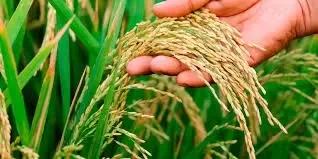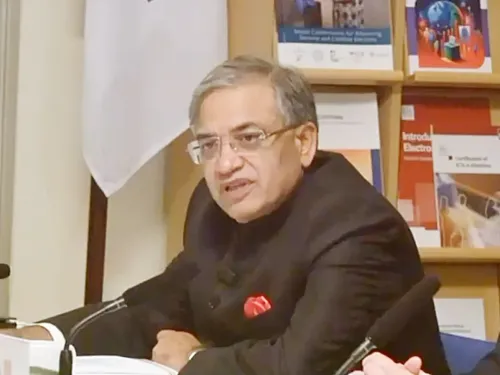Farmers in Tamil Nadu Delta Call for New Paddy Varieties Post Samba Crop Failure

Synopsis
Key Takeaways
- Farmers demand new high-yield paddy varieties.
- Insurance claims are often rejected despite timely coverage.
- Erratic rainfall has severely affected yields.
- Individual assessments for crop damages are requested.
- Financial losses are significant due to poor harvests.
Chennai, March 10 (NationPress) Following three consecutive years of Samba paddy crop failures, farmers in the delta region of Tamil Nadu are appealing to the Stalin government to implement new, high-yield paddy varieties. They have also requested full insurance coverage for the current season's losses, as existing varieties like the widely cultivated CR 1009 have not yielded the anticipated results.
Farmers generally expect a yield ranging from 2,400 kg to 6,000 kg per hectare (40 to 100 bags, each weighing 60 kg). However, this season, they only produced between 900 kg to 1,500 kg per acre (15 to 25 bags), with an average yield of 1,200 kg.
The farmers attribute their poor yield to erratic and untimely rainfall. Swamimalai Sundara Vimalanathan, a leader among Cauvery Delta farmers, noted that heavy rain struck the area just 10 days after transplantation, resulting in significant damage to young nurseries. Although farmers attempted to replant, subsequent rainfall caused even more losses. Moreover, heavy downpours in the last week of December 2024 severely impacted grain development, leading to a decline in food production throughout Tamil Nadu.
While the state government facilitated timely water releases, unpredictable rainfall severely hampered yields, pushing farmers into a financial crisis.
As stated by Rajashekharan, another farmer leader from the delta, farmers invested between Rs 35,000 and Rs 45,000 per acre but faced losses of at least Rs 20,000 per acre due to poor yields.
Mariappan, a farmer, mentioned that each paddy stem ideally contains 220 grains, but this season, they found only 100 to 120 grains per stem.
The majority of farmers in the region cultivate CR 1009, a high-yield variety known for its flood and drought resistance. Others have planted varieties such as ADT 51, ADT 46, ADT 39, ADT 38, IR 20, CO 43, CO 46, Bhavani, MDU, and TRY, but none achieved the expected yields this year.
Mariappan called on the government to introduce new paddy varieties that promise higher yields and better resilience to climatic challenges.
Farmers also raised concerns about insurance claim rejections, despite timely crop insurance. He emphasized that damage assessments are conducted at the revenue village level, covering about 15 hamlets, which often overlooks individual farmers facing substantial losses.
“We demand that crop damage assessments be conducted at the individual farmer level rather than averaging across several villages,” he asserted.
In light of consecutive crop failures and escalating financial burdens, delta farmers are urgently requesting government action to introduce climate-resilient paddy varieties and ensure fair compensation for their losses.










